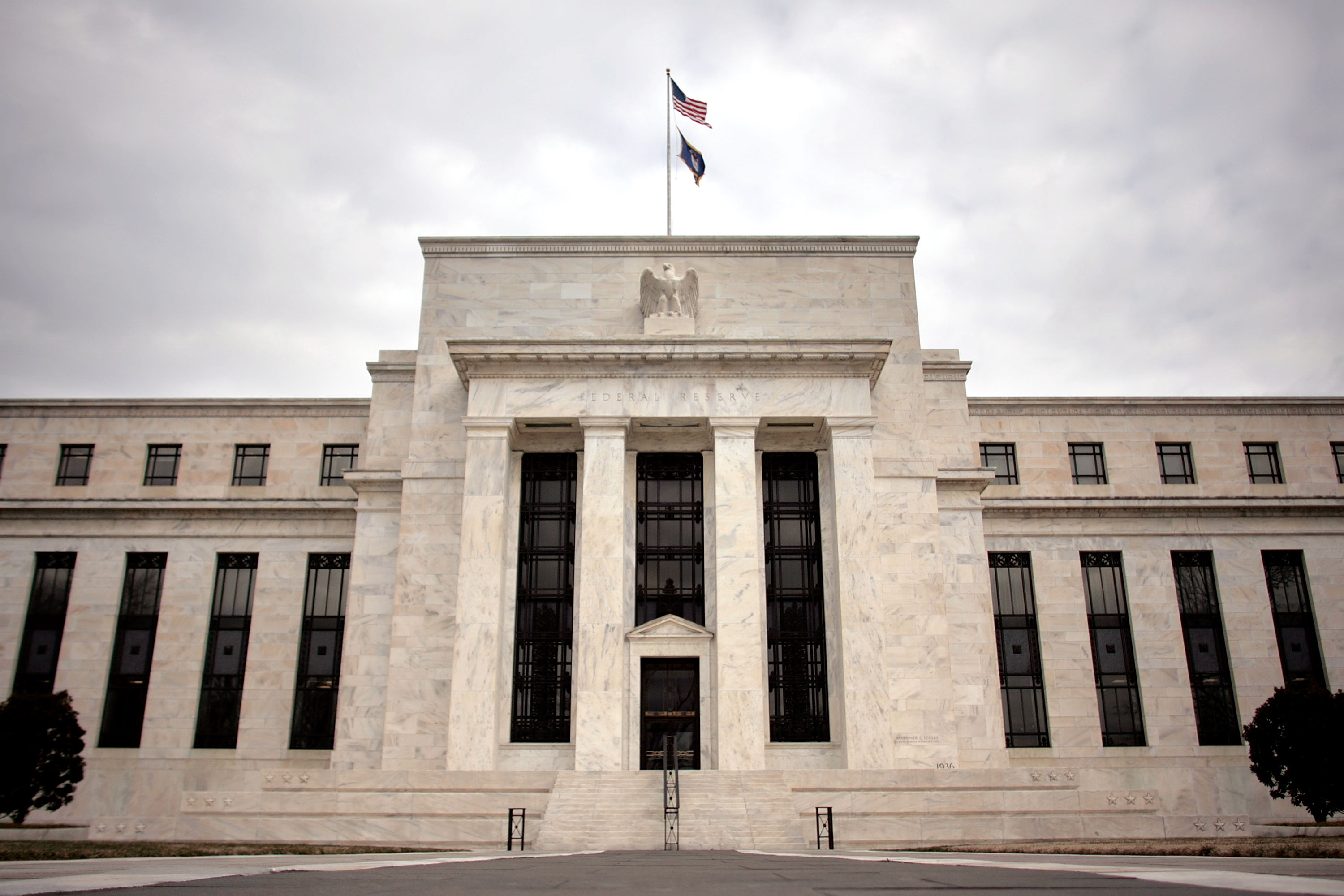Here's the crucial disagreement that's splitting the Federal Reserve


A free daily email with the biggest news stories of the day – and the best features from TheWeek.com
You are now subscribed
Your newsletter sign-up was successful
The minutes from the July meeting of the Federal Open Market Committee (FOMC) were released today. On the face of it, they don't tell us anything the Fed's press release that month didn't reveal: The FOMC feels the crucial trends — rates of job creation, the return of people to labor force, etc — are all improving at a modest-but-encouraging pace. They anticipate inflation will begin rising in the near future, and they'll begin slowly taking interest rates off the zero lower bound.
But one chunk of the minutes does get at a crucial disagreement amongst the FOMC members:
Most members saw room for some additional progress in reducing labor market slack, although several viewed current labor market conditions as at or very close to those consistent with maximum employment. Many members thought that labor market underutilization would be largely eliminated in the near term if economic activity evolved as they expected. However, several were concerned that labor market conditions consistent with maximum employment could take longer to achieve, noting, for example, the lack of convincing signs of accelerating wages. [Minutes of the Federal Open Market Committee July 28–29, 2015]
"Maximum employment" (or "full employment") is where jobs are so plentiful that employers can only gain new workers by outbidding other businesses with higher wage offers. If productivity throughout the economy increases at a slower pace than those bids, inflation will start rising. So the Fed hikes interest rates to keep inflation contained.
The Week
Escape your echo chamber. Get the facts behind the news, plus analysis from multiple perspectives.

Sign up for The Week's Free Newsletters
From our morning news briefing to a weekly Good News Newsletter, get the best of The Week delivered directly to your inbox.
From our morning news briefing to a weekly Good News Newsletter, get the best of The Week delivered directly to your inbox.
The problem is, while the headline unemployment rate of 5.3 percent is close to what's generally viewed as maximum employment, the other signs aren’t there. Wage growth and the inflation rate are still flat, and the portion of the population that's employed is still below its pre-2008 peak.
In fact, that 2008 peak was below its previous peak before the 2001 recession. So there's an argument in some quarters that not only should the Fed wait for full employment, but it shouldn't raise interest rates even after full employment has been achieved — just let the economy run hot for a while to repair the previous damage.
At any rate, this disagreement — between people who think maximum employment is nigh upon us, and those who think it's still a ways off — is splitting the FOMC itself. It's probably the most important yet under appreciated debate currently going on in economic policy.
A free daily email with the biggest news stories of the day – and the best features from TheWeek.com
Jeff Spross was the economics and business correspondent at TheWeek.com. He was previously a reporter at ThinkProgress.
-
 The problem with diagnosing profound autism
The problem with diagnosing profound autismThe Explainer Experts are reconsidering the idea of autism as a spectrum, which could impact diagnoses and policy making for the condition
-
 What are the best investments for beginners?
What are the best investments for beginners?The Explainer Stocks and ETFs and bonds, oh my
-
 What to know before filing your own taxes for the first time
What to know before filing your own taxes for the first timethe explainer Tackle this financial milestone with confidence
-
 TikTok secures deal to remain in US
TikTok secures deal to remain in USSpeed Read ByteDance will form a US version of the popular video-sharing platform
-
 Unemployment rate ticks up amid fall job losses
Unemployment rate ticks up amid fall job lossesSpeed Read Data released by the Commerce Department indicates ‘one of the weakest American labor markets in years’
-
 US mints final penny after 232-year run
US mints final penny after 232-year runSpeed Read Production of the one-cent coin has ended
-
 Warner Bros. explores sale amid Paramount bids
Warner Bros. explores sale amid Paramount bidsSpeed Read The media giant, home to HBO and DC Studios, has received interest from multiple buying parties
-
 Gold tops $4K per ounce, signaling financial unease
Gold tops $4K per ounce, signaling financial uneaseSpeed Read Investors are worried about President Donald Trump’s trade war
-
 Electronic Arts to go private in record $55B deal
Electronic Arts to go private in record $55B dealspeed read The video game giant is behind ‘The Sims’ and ‘Madden NFL’
-
 New York court tosses Trump's $500M fraud fine
New York court tosses Trump's $500M fraud fineSpeed Read A divided appeals court threw out a hefty penalty against President Trump for fraudulently inflating his wealth
-
 Trump said to seek government stake in Intel
Trump said to seek government stake in IntelSpeed Read The president and Intel CEO Lip-Bu Tan reportedly discussed the proposal at a recent meeting
